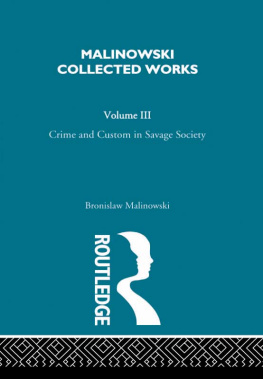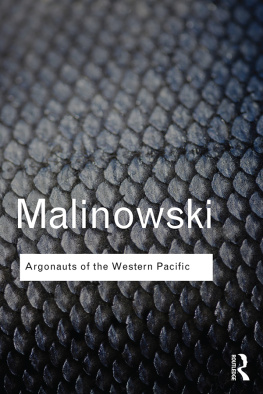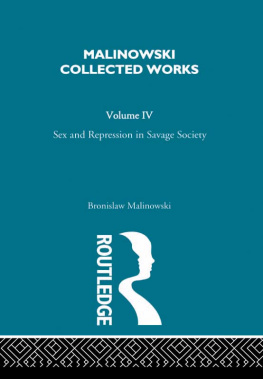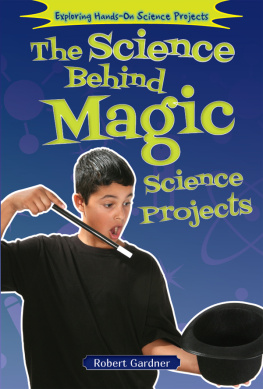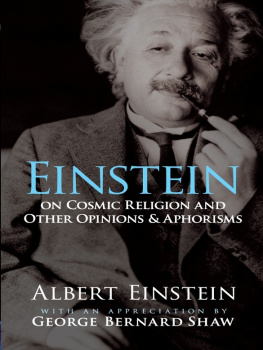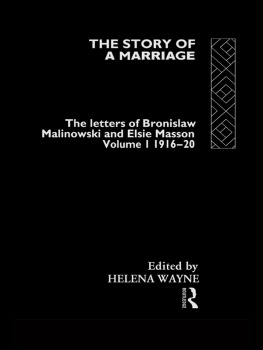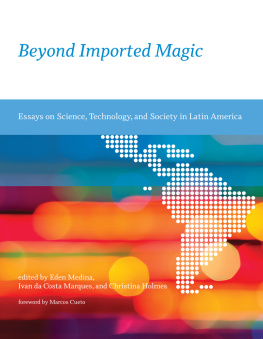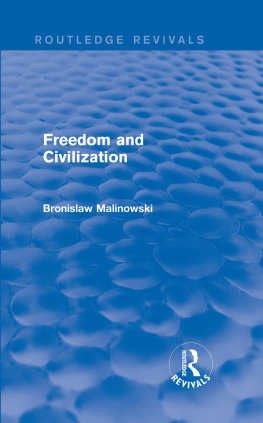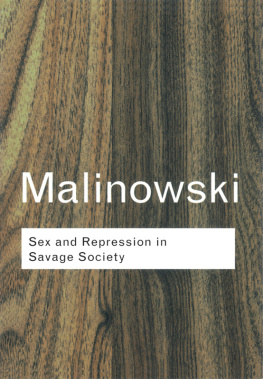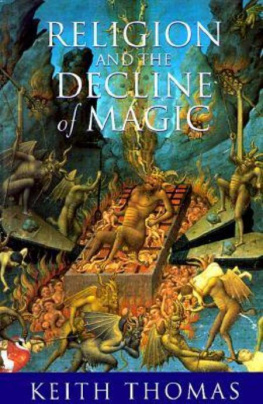Malinowski - Magic, Science and Religion and Other Essays
Here you can read online Malinowski - Magic, Science and Religion and Other Essays full text of the book (entire story) in english for free. Download pdf and epub, get meaning, cover and reviews about this ebook. year: 2013, publisher: Lightning Source Inc, genre: Religion. Description of the work, (preface) as well as reviews are available. Best literature library LitArk.com created for fans of good reading and offers a wide selection of genres:
Romance novel
Science fiction
Adventure
Detective
Science
History
Home and family
Prose
Art
Politics
Computer
Non-fiction
Religion
Business
Children
Humor
Choose a favorite category and find really read worthwhile books. Enjoy immersion in the world of imagination, feel the emotions of the characters or learn something new for yourself, make an fascinating discovery.

- Book:Magic, Science and Religion and Other Essays
- Author:
- Publisher:Lightning Source Inc
- Genre:
- Year:2013
- Rating:5 / 5
- Favourites:Add to favourites
- Your mark:
- 100
- 1
- 2
- 3
- 4
- 5
Magic, Science and Religion and Other Essays: summary, description and annotation
We offer to read an annotation, description, summary or preface (depends on what the author of the book "Magic, Science and Religion and Other Essays" wrote himself). If you haven't found the necessary information about the book — write in the comments, we will try to find it.
Magic, Science and Religion and Other Essays — read online for free the complete book (whole text) full work
Below is the text of the book, divided by pages. System saving the place of the last page read, allows you to conveniently read the book "Magic, Science and Religion and Other Essays" online for free, without having to search again every time where you left off. Put a bookmark, and you can go to the page where you finished reading at any time.
Font size:
Interval:
Bookmark:
Magic, Science and Religion
AND OTHER ESSAYS BY
Bronislaw Malinowski
WITH AN INTRODUCTION BY ROBERT REDFIELD
Copyright 2013 Read Books Ltd.
This book is copyright and may not be
reproduced or copied in any way without
the express permission of the publisher in writing
British Library Cataloguing-in-Publication Data
A catalogue record for this book is available from the
British Library
Bronislaw Malinowski
Bronislaw Kasper Malinowski was born in Krakw, Austria-Hungary (in present day Poland) in 1884. Both his parents were academics, and as a child he excelled academically. Malinowski received his Ph.D. in philosophy, physics, and mathematics in 1908 from the Jagiellonian University in Krakw. He graduated sub auspicious Imperatoris, the highest honour in the Austro-Hungarian Empire.
Malinowski spent the next two years at Leipzig University, where he was influenced by Wilhelm Wundt, and his theories of folk psychology. He had become acquainted with Sir James Frazers The Golden Bough, which stimulated his interest in primitive people and a desire to pursue anthropology. At the time, Frazer and other British authors were amongst the best-known anthropologists, and so in 1910 Malinowski travelled to England to study at the London School of Economics.
In 1914, Malinowski travelled to Papua (later Papua New Guinea) where he conducted fieldwork at Mailu and then, more famously, in the Trobriand Islands. He made several field trips to this area, some of which were extended to avoid the difficulties of emigrating from an Australian colony during the First World War. It was during this period that he conducted his fieldwork on Kula.
By 1922, Malinowski had earned a doctorate of science in anthropology and was teaching at the London School of Economics (LSE). In that year his most famous work, Argonauts of the Western Pacific (1922), was published. Universally regarded as a masterpiece, the book saw Malinowski became one of the best known anthropologists in the world. For the next three decades Malinowski established the LSE as one of Britains greatest centres of anthropology. He trained many students, including those from Britains colonies who went on to become important figures in their home countries.
Malinowski taught intermittently in the United States, and was a lecturer at Cornell University in 1933 and for several years after that. When World War II broke out during one of these trips he remained in the country, taking up a position at Yale University, although he remained actively identified with the Polish partisan cause during the war.
His career at Yale was less spectacular than previously, but it gave him the chance to study peasant markets in Mexico in 1940 and 1941. Bronislaw Malinowski died in 1942, aged 58. Aside from his Argonauts of the Western Pacific (1922), his best-remembered works are Myth in Primitive Psychology (1926), Crime and Custom in Savage Society (1926), Sex and Repression in Savage Society (1927) and The Sexual life of Savages in North-Western Melanesia (1929).
Introduction
No writer of our times has done more than Bronislaw Malinowski to bring together in single comprehension the warm reality of human living and the cool abstractions of science. His pages have become an almost indispensable link between the knowing of exotic and remote people as we know our own neighbors and brothers, and conceptual and theoretical knowledge about mankind. The novelist of talent brings particular men and women to our direct acquaintance, but he does not convert this swift and intimate understanding into the formal generalizations of science. On the other hand, many scientific students of society state such general formulations, but without providing that direct acquaintance with real peoplethat sense of being there as the work is done or the spell performedwhich makes the abstract generalization truly meaningful and convincing. Malinowskis gift was double: it consisted both in the genius given usually to artists and in the scientists power to see and to declare the universal in the particular. Malinowskis reader is provided with a set of concepts as to religion, magic, science, rite and myth in the course of forming vivid impressions and understandings of the Trobrianders into whose life he is so charmingly drawn.
I shall invite my readers,so writes Malinowskito step outside the closed study of the theorist into the open air of the Anthropological field... The Anthropological field is almost always the Trobriand Islands. Following Malinowski, we are soon paddling on the lagoon, watching the natives under the blazing sun at their garden work, following them through the patches of jungle; and... on the winding beaches and reefs, we shall learn about their life. The life we learn about is both Trobriand life and the life of common humanity. The criticism so often leveled at Malinowski that he generalized from a single case loses much of its force if the assumption may be admitted that there are a common human nature and a universal culture pattern. No writer ever better justified the assumption. We may learn much of all societies from a single society, of all men from a few men, if unusual insight is combined with patient and prolonged study of what other students have written about other societies.
Malinowski looks at the people, then looks back at the books, and then looks again at the people. He does not, as some have done, look at the people, if at all, to find there what the books have told him he should find. The eclecticism of Malinowskis theory is compelled by the fact that the human reality to which he always returns cannot be fully represented by any single theoretical emphasis. Consider how, in the illuminating essay Magic, Science and Religion he takes account of the various views of religion which Tylor, Frazer, Marett, and Durkheim have respectively given, and how religion emerges in those pages more multidimensional than in any single account of any one of these other anthropologists. Religion is not only people explaining and projecting their dreams; it is not only a sort of spiritual electricmana;it is not solely to be recognized in social communionno, religion and magic are ways men must have, being men, to make the world acceptable, manageable, and right. And we see the truth of the many-sided view in the windings and twistings of rite and myth, work and worship, in this now well-known island world in New Guinea.
Perhaps it is because he is always so faithful to the reality of the one well-considered, intimately known instance that his method falls short of the requirements of the scientists formal rule book. If comparisons are made between the Trobriand Islanders and other groups, they are mostly implicit. The materials from the Trobriand Islands, while immensely abundant and rich, are nowhere exposed to us to be fully appraised or to be counted. The notebooks are not opened to us to order and to choose. There is no proof, in any formal sense.
Clyde Kluckhohn has characterized the method as that of The well-documented anecdote set firmly in a ramified context. This is well said. In the following papers we shall see how often a formulation about society, an insight into human behavior, is established by the vivid recollection of some simple experience in these islands. The description of the natives fishing on the lagoon makes the whole essay on language; the episode about the Trobrianders walking single-file who are interested but not terrorized by hearing a ghost in a yam garden, and several other such stories, make the basis for the discussion of the spirits of the dead and their manifold significance. We are convinced, not by formal proof, but by following Malinowski in his demonstration of the meaning and function of belief and rite in a society, which, while alien to us, we are nevertheless made to feel is ourselves in another form.
Next pageFont size:
Interval:
Bookmark:
Similar books «Magic, Science and Religion and Other Essays»
Look at similar books to Magic, Science and Religion and Other Essays. We have selected literature similar in name and meaning in the hope of providing readers with more options to find new, interesting, not yet read works.
Discussion, reviews of the book Magic, Science and Religion and Other Essays and just readers' own opinions. Leave your comments, write what you think about the work, its meaning or the main characters. Specify what exactly you liked and what you didn't like, and why you think so.

